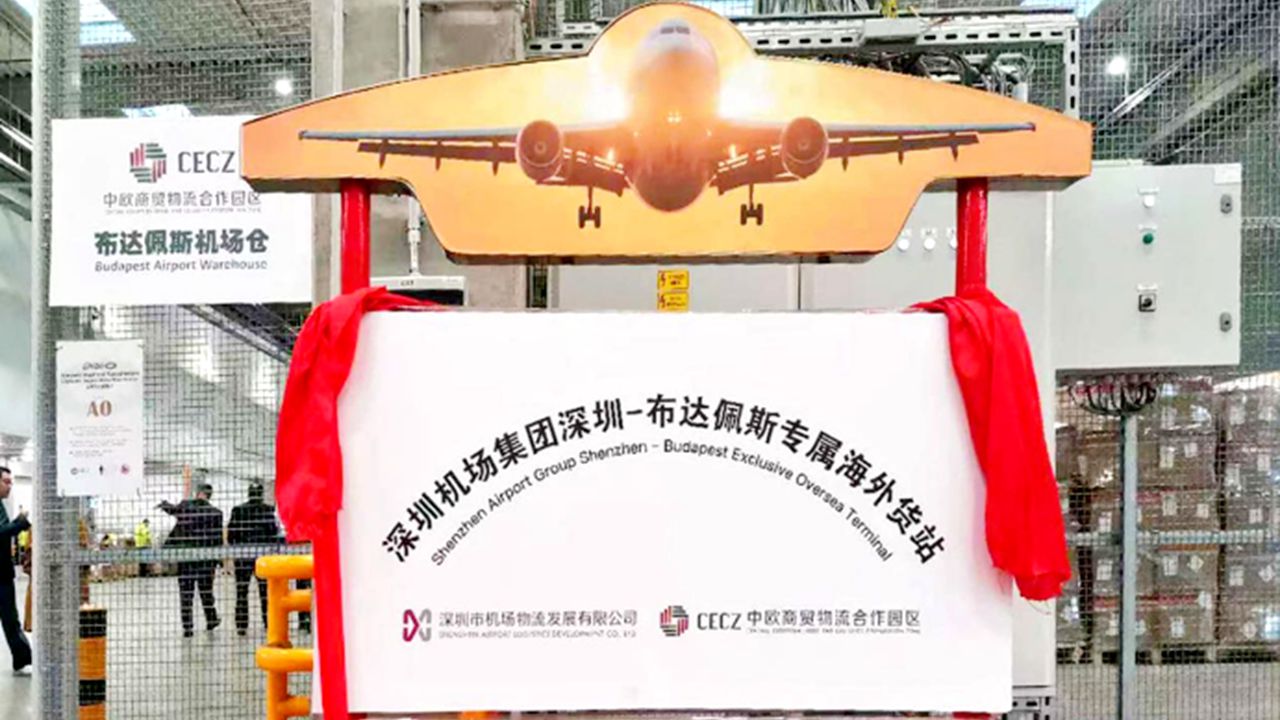Airport cargo terminal in Budapest put into operation
Writer: Han Ximin | Editor: Zhang Zhiqing | From: Shenzhen Daily | Updated: 2024-11-21
Shenzhen airport launched its third overseas cargo terminal in Budapest, Hungary on Wednesday, following the operations of terminals in Frankfurt and Mexico City.
These strategic developments aim to provide seamless logistics services for Shenzhen-based enterprises looking to expand their presence in international markets and play a pivotal role in fostering the rapid growth of Shenzhen as a globally influential logistics hub, according the airport yesterday.

Shenzhen Airport launches its third overseas cargo terminal in Budapest, Hungary on Wednesday. File photos
Operated by the Central European Trade and Logistics Cooperation Park, the Budapest cargo terminal boasts an expansive storage area exceeding 11,000 square meters and an annual cargo handling capacity of over 40,000 tons, representing more than 20% of Budapest Airport's total cargo throughput.
Further strengthening its global footprint, Shenzhen airport a week ago collaborated with Lufthansa Cargo to establish a 2,000 square meter cargo terminal in Frankfurt, capable of handling approximately 26,000 tons annually. In a parallel initiative, Shenzhen airport ventured into establishing its first overseas cargo terminal in Mexico City back in June, equipped with a sizable warehouse spanning 10,000 square meters.
The strategic locations of these cargo terminals exemplify the close ties between Shenzhen and these three vibrant cities.
Shenzhen airport facilitates a robust air network with two weekly outbound passenger flights and six cargo flights to Budapest, while maintaining similar ties to Frankfurt and Mexico City with multiple weekly flights for passengers and cargo operations.

Staff members deliver cargo at Shenzhen Airport's overseas cargo terminal in Budapest, Hungary.
Budapest, known as Hungary's premier air gateway, leverages its strategic geographic position to efficiently cover key Eastern European countries through a well-connected ground transit network, making it an ideal logistics hub. Benefiting from Shenzhen's robust foreign trade demands, Budapest serves as a central point for various industries such as automotive and pharmaceutical manufacturing, complementing Shenzhen's technological advancements and manufacturing strengths.
Frankfurt, a pivotal commercial, financial, and transportation hub in Germany and Europe, offers unparalleled connectivity through its extensive air and rail networks. As Germany's largest airport and Europe's primary cargo hub, Frankfurt International Airport presents substantial opportunities for collaboration in innovation, finance, and trade between Shenzhen and Frankfurt. Meanwhile, Mexico City stands as a major political, economic, and financial center in Latin America, creating a harmonious synergy with Shenzhen's innovative manufacturing and technology sectors, catering to Mexico City's dynamic industries in automotive, electronics, and machinery.